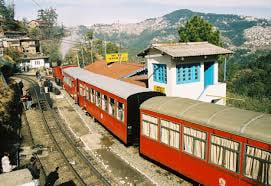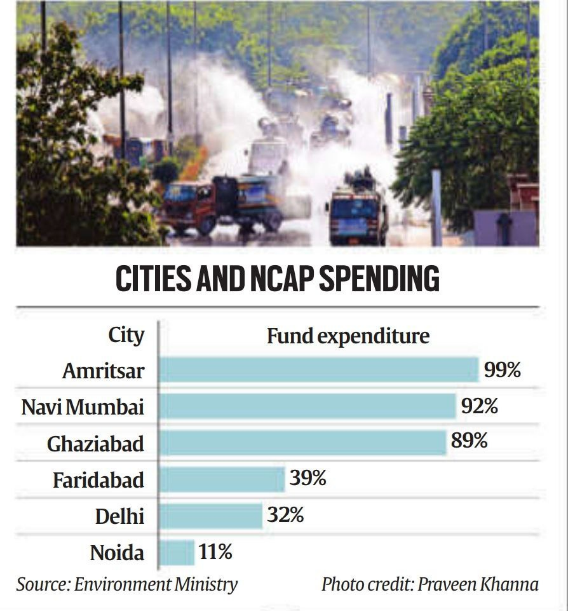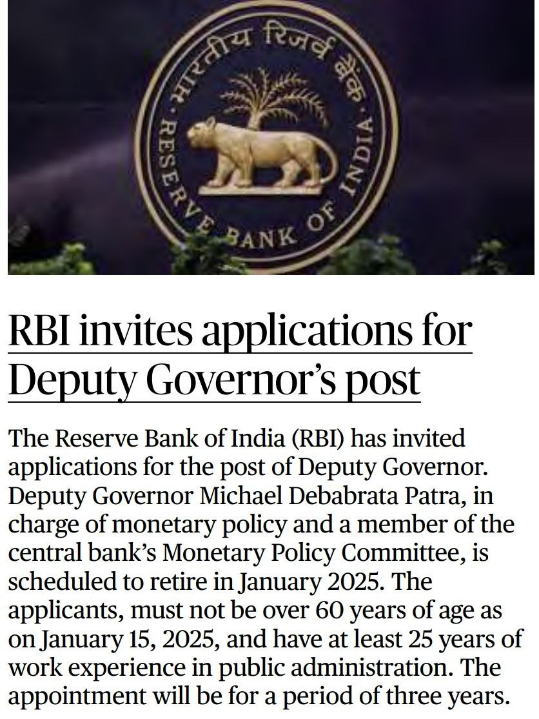1. Green Hydrogen-Powered Toy Trains on Kalka-Shimla Route
Context: Himachal Pradesh Chief Minister Sukhvinder Singh Sukhu urged the Central Government to explore the use of green hydrogen to run toy trains on the Kalka-Shimla railway route, a UNESCO World Heritage site.
- The initiative aims to make Himachal Pradesh a ‘green energy State’ by 2026.
Key Points:
- Green Hydrogen for Toy Trains:
- Proposal to transition the Kalka-Shimla narrow-gauge railway to green hydrogen, a clean energy source.
- This aligns with the state’s broader goal of becoming a fully renewable energy-powered state.
- Significance of Kalka-Shimla Railway:
- UNESCO declared the Kalka-Shimla railway a World Heritage Site on 8th July 2008.
- It is a narrow-gauge railway, traversing a mostly mountainous route.
- State’s Green Energy Strategy:
- Himachal Pradesh aims to become a ‘green energy State’ by March 31, 2026.
- The state has undertaken several initiatives to replace its current thermal power consumption of 13,500 Million Units (MUs) with 90% renewable energy, including hydro, solar, and wind power.
- Contribution to National Climate Goals:
- Aligns with India’s Nationally Determined Contributions (NDCs) under the Paris Agreement.
- The initiative will contribute to India’s climate commitments by promoting a fair transition to sustainable energy.
- Solar Power Focus:
- In addition to green hydrogen, the state is prioritizing solar energy.
- Plans are in place to establish a 2,000 MW solar capacity over the next four to five years.
- Economic and Environmental Benefits:
- Green energy initiatives will boost the state’s economy.
- Industries within the state may apply for the ‘Eco Mark’ to enhance the value of their products, promoting sustainable development.
- Partnership with Oil India Limited:
- Himachal Pradesh is collaborating with Oil India Limited (OIL) on its first green hydrogen production facility.
Further discussions are ongoing with private investors for more such facilities.
2. Chhattisgarh's Industrial Policy 2024-29
Context: Chhattisgarh is launching its Industrial Policy 2024-29, aligned with the “Amritkaal: Chhattisgarh Vision@2047” initiative, aiming to transform the state into a self-reliant industrial hub. The policy emphasizes inclusivity, economic growth, and sustainability.
Key Points:
- Inclusivity and Economic Empowerment:
- Special provisions for surrendered Naxals, women, and the third gender community to integrate them into the mainstream.
- Focus on providing support, training, and entrepreneurship opportunities for these groups to achieve economic self-reliance.
- Surrendered Naxals: Rehabilitation through financial assistance and entrepreneurship training.
- Third Gender Community: Support for starting enterprises, backed by government financial assistance.
- Women Entrepreneurs: Encouraging women’s participation in industry through investment promotion and business training.
- Balanced Industrial Growth:
- The policy aims to foster growth across sectors, raising the investment subsidy from 18%-20% to 30%-35%, benefiting both small and large enterprises.
- A fund of ₹50 crore is set aside to support start-ups and promote innovation in various industries.
- Streamlining Processes: Introduction of “Single Window System 2.0” to simplify business processes, digitizing licences, permissions, and registrations across multiple departments to encourage ease of doing business.
- Focus on Pollution-Free Industries: Emphasis on manufacturing electric vehicles and promoting environmentally friendly industries, ensuring sustainable growth alongside economic development.
- Development of Industrial Clusters:
- The policy aims to establish new logistics hubs, industrial zones, and clusters across the state, providing a comprehensive ecosystem for businesses.
- Focus on small, medium, and large enterprises, strengthening the state’s industrial base and facilitating job creation.
- Chhattisgarh Vision@2047:
- The state aims to contribute significantly to India’s vision of a developed nation by 2047.
The policy supports Narendra Modi’s vision of a developed and self-reliant India, while ensuring economic resilience at the state level.
3. Kerala to Probe Social Media Group for 'Hindu IAS Officers'
Context:
- The Kerala government is investigating the controversial formation of a WhatsApp group allegedly created for “Hindu IAS officers.”
- The issue came to light following a complaint by an IAS officer.
Key Points:
- Complaint and Investigation:
- An IAS officer lodged a complaint with the Thiruvananthapuram City Police Commissioner, alleging his WhatsApp number was hacked and used to create the group.
- The officer immediately disbanded the group upon discovering its formation and filed a police complaint.
- The group was labeled as a “Hindu community group” and reportedly included officers from various communities.
- Government’s Response:
- Kerala’s Industries Minister P. Rajeeve confirmed that the government is taking the incident seriously and examining it under the Public Administration Department’s code of conduct for IAS officers.
- The investigation aims to determine whether the group was intended to promote community-based divisions, which are concerning.
- Opposition’s Criticism:
- Leader of Opposition V.D. Satheesan criticized the government, stating that the creation of such a group is a “slur on the State.”
- The opposition has been closely monitoring the situation, noting earlier warnings from CPI leader Annie Raja about the alleged influence of the Rashtriya Swayamsevak Sangh (RSS) within the government.
- Concerns Raised:
- The controversy has raised concerns about community-based divisions within the Indian Administrative Service, which could undermine the secular and inclusive nature of the civil service.
The government reiterated its commitment to examining the situation and ensuring adherence to the code of conduct.






